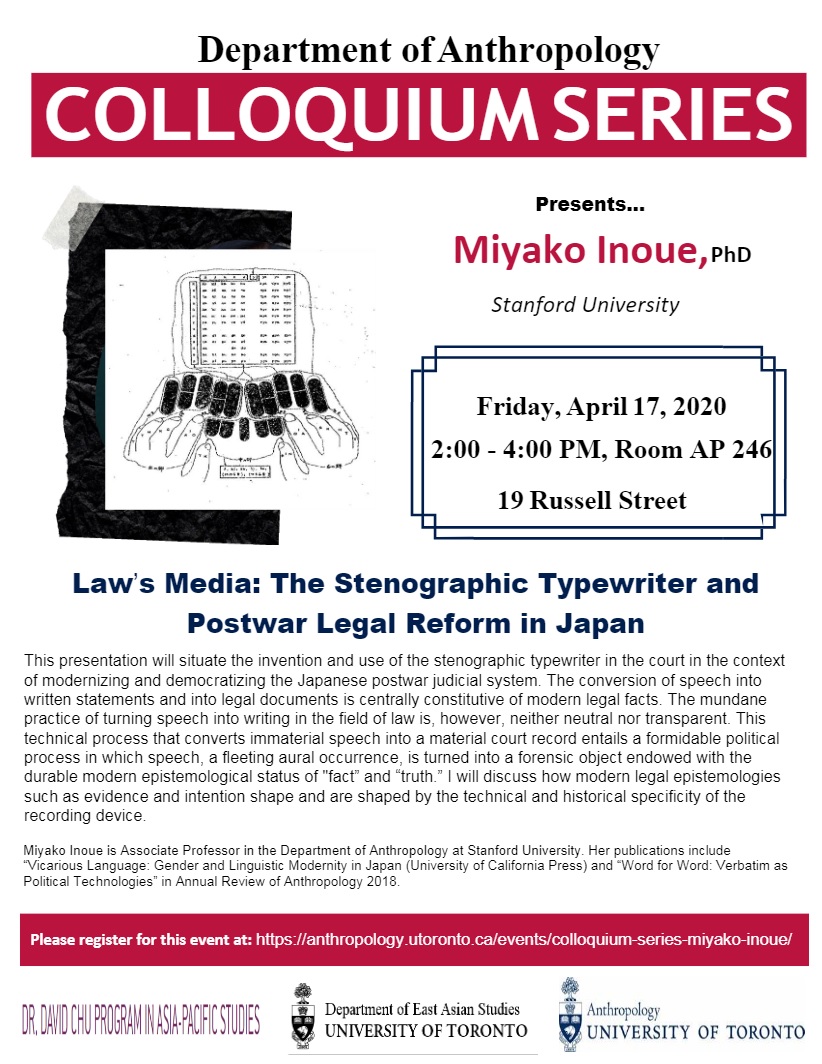Colloquium Series: Miyako Inoue
When and Where
Description
 ***OPEN INVITE TO ALL***
***OPEN INVITE TO ALL***
(Right: Sokutaipu keyboard layout, image courtesy of Tsuguo Kaneko)
Title: Law’s Media: The Stenographic Typewriter and Postwar Legal Reform in Japan
The Japanese stenographic typewriter was introduced into the court system after WWII. In the prewar Japanese courts, verbatim records were never required, and neither the stenographic typewriter nor shorthand stenography, both of which were available, was used. As part of the post-World War II democratization policies under the US occupation, however, judicial reform adopted the principle of direct trial and the adversarial system from Anglo-American law. This was accompanied by the introduction of cross-examination. These changes prompted the recruitment and training of court stenographers and mandatory stenographic recording in the court. This presentation will situate the invention and use of the stenographic typewriter in the court in the context of modernizing and democratizing the Japanese postwar judicial system. The conversion of speech into written statements and into legal documents is centrally constitutive of modern legal facts. The mundane practice of turning speech into writing in the field of law is, however, neither neutral nor transparent. This technical process that converts immaterial speech into a material court record entails a formidable political process in which speech, a fleeting aural occurrence, is turned into a forensic object endowed with the durable modern epistemological status of “fact” and “truth.” I will discuss how modern legal epistemologies such as evidence and intention shape and are shaped by the technical and historical specificity of the recording device, and how the “law”would look like concrete technical recording device.


